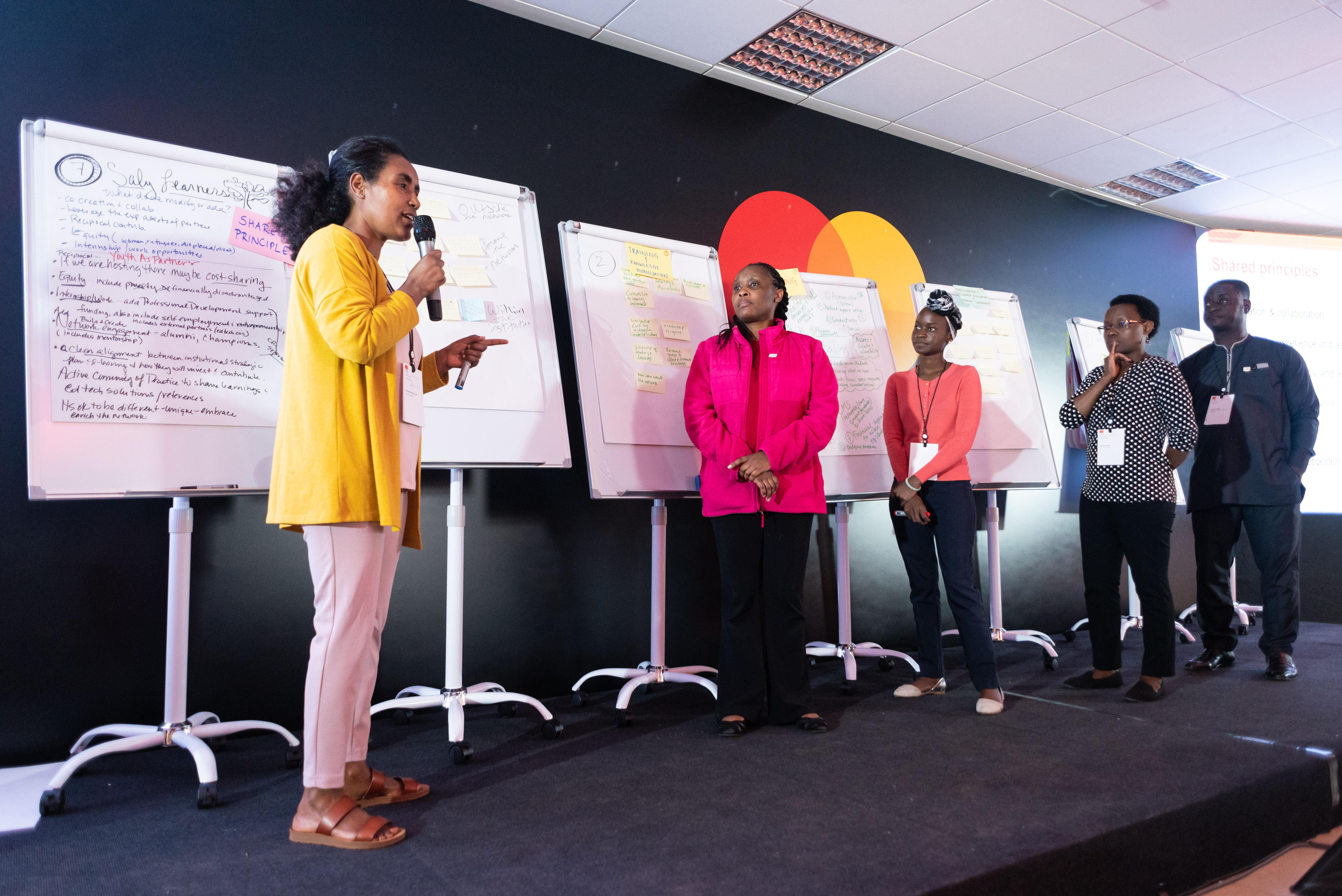
Impact Story
Building Digital Capacity: Inside Phase I of the Scholars Program e-Learning Initiative
How can universities across Africa build sustainable and inclusive online learning systems that reach more students and prepare them for a digital future?

Engagement Level(s)
Institution(s)
Location(s)
Topic(s)
When the COVID-19 pandemic disrupted higher education systems across Africa, the challenge wasn’t just how to maintain instruction—it was how to reimagine it for a more resilient, inclusive future. In response, the Mastercard Foundation launched the Scholars Program e-Learning Initiative in 2020, in partnership with Arizona State University (ASU) and United States International University-Africa (USIU-Africa). Phase I of the initiative laid critical groundwork for lasting digital learning capacity, reaching institutions across the continent and influencing both academic practice and national policy conversations.
A Human-Centered Start to Digital Transformation
From September 2020 through March 2022, Phase I focused on strengthening institutional capacity and enabling universities to transition from emergency remote instruction to sustainable online education. A core feature was the training of 135 e-Learning Champions — faculty and staff who completed an intensive virtual Master Class for Teaching Online, led by ASU’s EdPlus, and continued with tailored coaching provided by USIU-Africa. In addition, 53 Scholars completed the Graduate Certificate in Instructional Design and Performance Improvement. Together, these Champions became advocates and implementers of online learning innovation within their institutions.
At the same time, cross-institutional collaboration helped surface common challenges and strategies, spanning infrastructure gaps, pedagogical design, and learner support models. The initiative fostered not only skill development but a shift in mindset toward long-term digital innovation.
Strategic Support and Systems Thinking
The University Design Institute (UDI) brought systems-level guidance to the initiative. Through a series of facilitated workshops and one-on-one consultations with institutional leaders, UDI helped universities identify barriers to scale and co-design solutions. These engagements explored instructional infrastructure, faculty development strategies, content production, and organizational models to support scalable, inclusive e-learning.
The emphasis was on local adaptation and long-term sustainability — not a one-size-fits-all model, but a design approach that allowed institutions to move forward with clarity and purpose.
Expanding Impact to Underserved Populations
By the close of Phase I, the initiative had indirectly benefited over 95,000 tertiary students by improving the quality and accessibility of online teaching across participating institutions. Other notable outcomes included enhanced institutional capacity, the establishment of new instructional design practices, expanded collaboration across the network, and the development of policy briefs that offered actionable recommendations for government and academic leaders aiming to support the scaling of digital learning across the continent.
These outputs positioned universities to align their digital education strategies with national development goals and to contribute meaningfully to the broader effort of rethinking higher education in a digital, post-pandemic world.
Laying the Groundwork for What’s Next
As the e-Learning Initiative moves into Phase II, with a deeper focus on digital transformation strategy and technology integration across university systems, the groundwork laid during Phase I remains an essential story: one of collaboration, co-design, and a shared commitment to accessible, future-ready education.